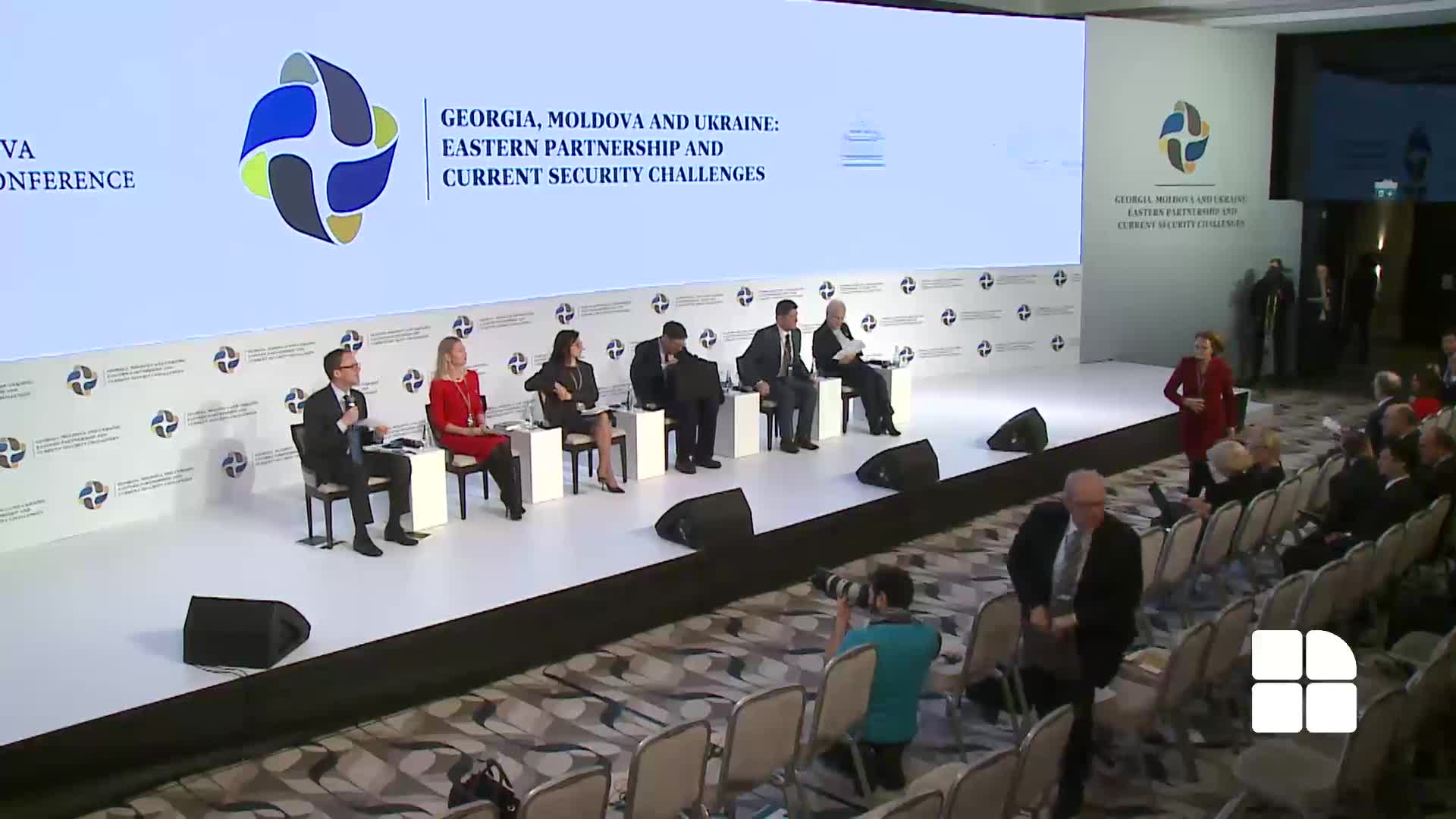#parl4sec. Consolidation of Energy Security discussed at the inter-parliamentary summit

At the Inter-parliamentary summit "Georgia, Moldova and Ukraine: Eastern Partnership and current security challenges", Panel III spoke of current developments in the transfer of gas demand from Russia and the strengthening of energy independence in the region.
Madam Irena Degutiene, Speaker of Seimas: "Lithuania knows what it means to lack energy security. What it means to have a neighbor that can have a big impact through energy. We are happy to have made such a big step in terms of security. Lithuania understood that by becoming member of NATO it gained energy security, like our neighbors that were also isolated. Lithuania changed its energy strategy and managed to become a leader. Prices for energy decreased by 18%. We created a Gas Terminal and managed to gain success. Lithuania always believed that energy security can be achieved through EU. We have a very aggressive neighbor. Gas and oil are known for gaining geopolitical aims. We will continue to support Ukraine. We have achievements because we now also have reactions. Member countries of the Eastern Partnership must assist each other. Countries are following their own economic interests and sometimes ignore the threats from bigger neighbors. It is a threat to the independence of some sovereign states. We must be united and think of progress. Hybrid wars exist in other countries as well."
Madam Nataliya Katser-Buchkovska, head of the subcommittee on Sustainable Development, Strategy and Investments, Committee on Energy, Nuclear Policy and Security: "In 2014 we were put under a great threat, because in 2014 we depended on Russian gas. Now, we do not buy it anymore from them. In 2008 we signed a contract to purchase gas from another company. In a few months we won a project and now have our own market. It is an achievement. Along with Moldova, we are turning our energy security to Europe. We are being transformed. Ukraine now faces some challenges. We cannot depend only on a single provider. Lack of communication among countries is a similar problem. Neighbor countries must straighten their energy security. Only together, can we overcome this threat."
Ambassador John Herbst, director of the Atlantic Council's Eurasia Center: "In the 80' president of U.S. expressed his concerns regarding the pipes build from Russia toward Europe. A few times in the past 12, 13 and 14 years, Kremlin stopped providing gas as a punishment to Ukraine and Belarus. EU recognized the importance of energy security. EU represents the world's biggest economic player, it can remove Moscow's influence from the market. EU and the world can fight against Moscow's monopoly upon gas provision. USA needed energy for many decades and through liquefied gas US recovered in this sector, which lowered the prices for gas in the world. Putin is a revisionist politician from the point of view of territorial integration. "
Dr. Agnia Grigas, political scientist, Atlantic Council's Eurasia Center: "I am happy to return here. Energy security is a very important topic. I would say that we have more gas, more trade and more opportunities. USA is a country of energy. This creates many competitors for Russia. We see changes when Russia tries to reclaim the gas market. There is also a fight among European countries for gas supply. I wish to mention the duty's risk. Gas debts can be very dangerous and must be taken into consideration."
PUBLIKA.MD reminds that within the even "Georgia, Moldova and Ukraine: Eastern Partnership and current security challenges" the three countries will sign a declaration on the European Integration perspectives and the current security issues.
At the event will gather close to 150 officials and renown specialists, including Presidents of Parliaments, Members of the European Parliament and representatives of United States Congress, as well as well known local and international experts.